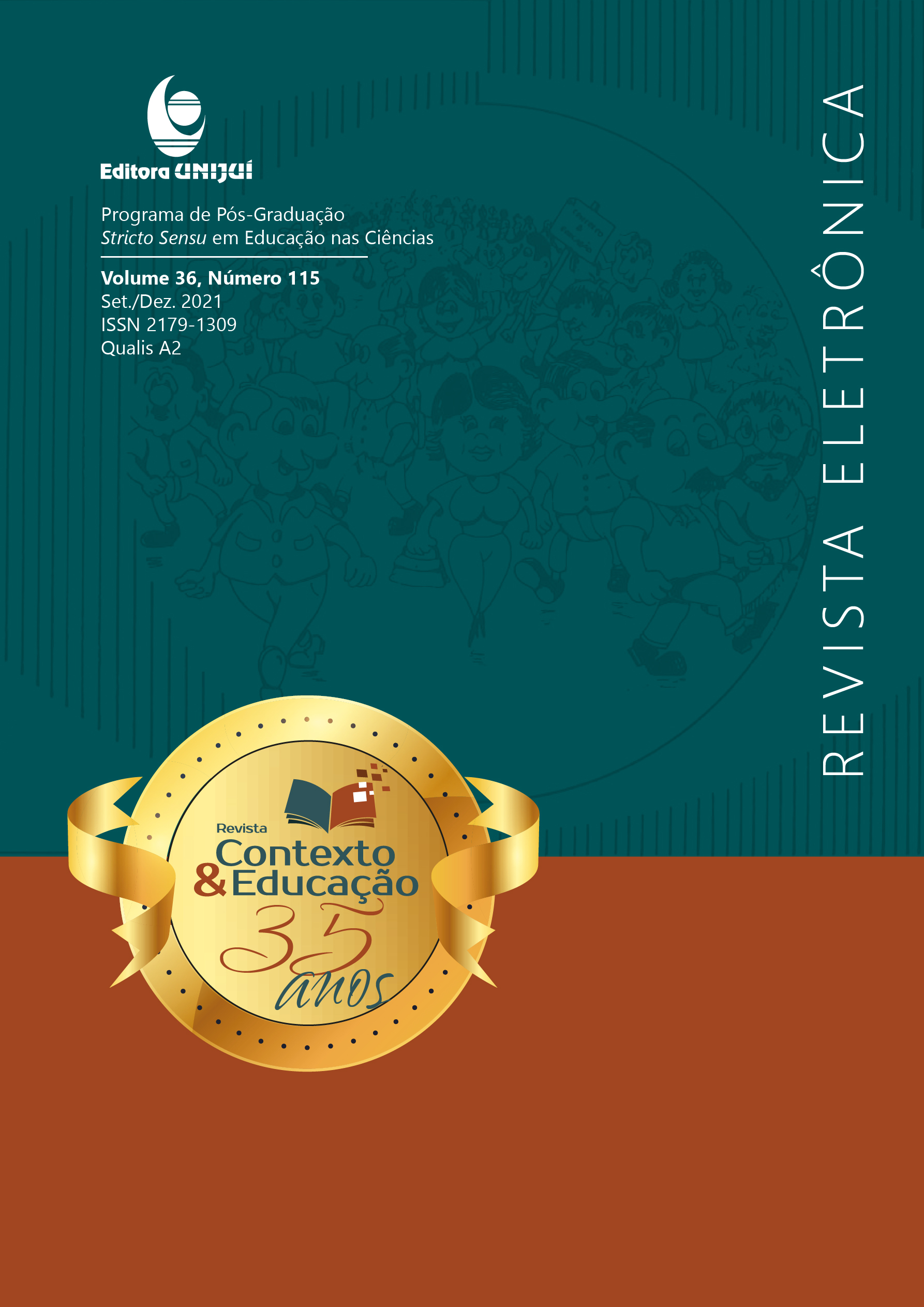A MEDIAÇÃO DIDÁTICA NA APRENDIZAGEM: A CONSTRUÇÃO DO CONHECIMENTO GEOGRÁFICO
DIDACTIC MEDIATION IN LEARNING: THE CONSTRUCTION OF THE GEOGRAPHICAL KNOWLEDGE
DOI:
https://doi.org/10.21527/2179-1309.2021.115.11293Palavras-chave:
Mediação Didática; Construção do Conhecimento; Geografia; Teoria Histórico-Cultural.Resumo
Este artigo busca atender, especificamente, a dois objetivos: compreender o conceito de mediação na teoria histórico-cultural; destacar a importância da mediação didática para a aprendizagem geográfica. Este trabalho fundamenta-se na Teoria Histórico-Cultural e tem por objetivo utilizar como referência básica um de seus precursores, o professor e pesquisador bielo-russo Lev Semionovitch Vigotski (1896-1934). A perspectiva vigotskiana e seus desdobramentos para o campo educacional se configuram como um essencial postulado teórico, principalmente no que se refere a quatro importantes contribuições desse estudo: a mediação, sobretudo a didática; a internalização; a formação de conceitos e as funções psíquicas superiores. Com base na reflexão que introduz este artigo, o presente estudo tem como finalidade desenvolver uma discussão, prioritariamente, acerca de um dos conceitos que envolvem um método e um caminho metodológico a se seguir no ensino – a mediação –, à luz da perspectiva teórica vigotskiana. Cabe, assim, indagar: como a mediação do professor propicia a atividade cognitiva do aluno, a partir de um encaminhamento metodológico?
Downloads
Publicado
Como Citar
Edição
Seção
Licença
Ao publicar na Revista Contexto & Educação, os autores concordam com os seguintes termos:
Os trabalhos seguem a licença Creative Commons Atribuição 4.0 Internacional (CC BY 4.0), que permite:
Compartilhar — copiar e redistribuir o material em qualquer meio ou formato;
Adaptar — remixar, transformar e criar a partir do material para qualquer fim, inclusive comercial.
Essas permissões são irrevogáveis, desde que respeitados os seguintes termos:
Atribuição — os autores devem ser devidamente creditados, com link para a licença e indicação de eventuais alterações realizadas.
Sem restrições adicionais — não podem ser aplicadas condições legais ou tecnológicas que restrinjam o uso permitido pela licença.
Avisos:
A licença não se aplica a elementos em domínio público ou cobertos por exceções legais.
A licença não garante todos os direitos necessários para usos específicos (ex.: direitos de imagem, privacidade ou morais).
A revista não se responsabiliza pelas opiniões expressas nos artigos, que são de exclusiva responsabilidade dos autores. O Editor, com o apoio do Comitê Editorial, reserva-se o direito de sugerir ou solicitar modificações quando necessário.
Somente serão aceitos artigos científicos originais, com resultados de pesquisas de interesse que não tenham sido publicados nem submetidos simultaneamente a outro periódico com o mesmo objetivo.
A menção a marcas comerciais ou produtos específicos destina-se apenas à identificação, sem qualquer vínculo promocional por parte dos autores ou da revista.
Contrato de Licença (para artigos publicados a partir de outubro/2025): Os autores mantém os direitos autorais sobre seu artigo, e concedem a Revista Contexto & Educação o direito de primeira publicação.


